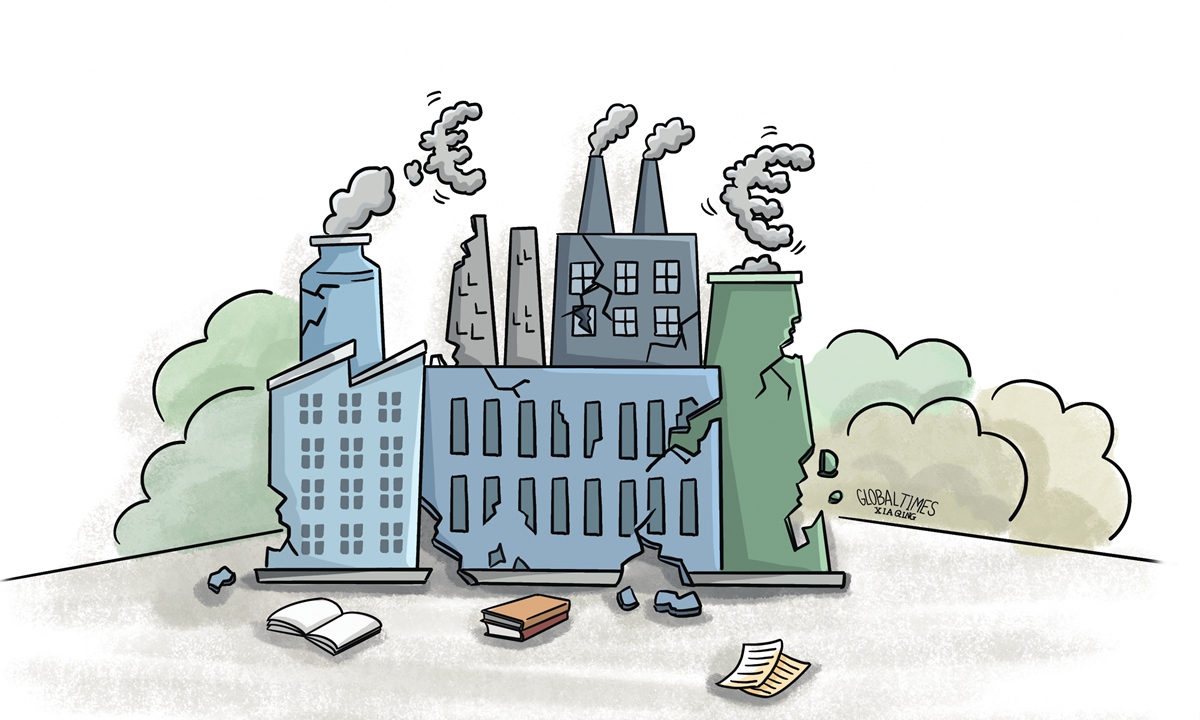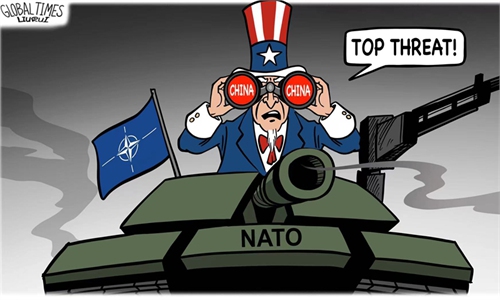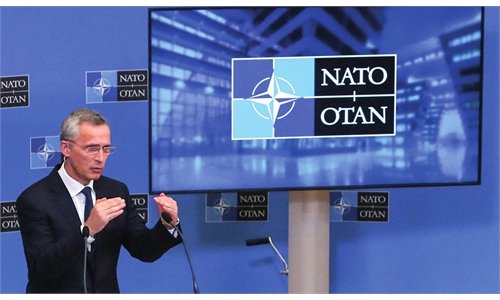US manufacturing causes economic, spiritual decline

Illustration: Xia Qing/GT
NATO Secretary General Jens Stoltenberg warned on Monday about "growing Chinese efforts to control" critical infrastructure, supply chains and key industrial sectors.
Like some European politicians who have pushed the "China threat" theory, Stoltenberg is using his fertile imagination to create false reasons to hide the looming recession across Europe in both economy and spirit.
The question for Europe is not what key facilities China wants "to control," but whether European countries themselves have the capacity to build them. Ultimately, it is how Europe's economy will regroup on top of a collapsing manufacturing base.
The challenge for Europe is not what the Chinese are doing to Europe, but how the Europeans are doing to themselves.
The fact that Europe's economy is already fragile and has been hit hard again by the energy crisis triggered by the Russia-Ukraine conflict is enough of a wake-up call for Europe's politicians and elites.
Stoltenberg would do well to ask the young people around him if they are willing to take jobs in the manufacturing sector and sit on assemble lines for a whole working day?
They would rather "lie flat."
According to a survey by Eurostat in May this year, 13.1 percent of the 15-29-year-olds in the EU in 2021 were NEET - Young people Not in Education, Employment or Training.
The UK is a typical example of manufacturing decline. Back in the day, Britain used to be the "factory of the world." Today, how much British manufacturing can still occupy a mainstream position in the world market?
According to the World Bank data, the UK's manufacturing value added as a share of its GDP fell from 16.67 percent in 1990 to 8.59 percent in 2019.
Another World Bank figure shows that in the 23 most developed economies, including the US and major EU member states, manufacturing employment declined from about 28 percent of their GDP in 1970 to about 18 percent in 1994. Among the 15 countries in the EU, the share of manufacturing employment was relatively high in 1970 at over 30 percent, but then fell sharply to only 20 percent in 1994 and has continued to decline to about 15 percent to date.
Manufacturing in the EU today, especially in countries such as Germany, the Netherlands and Sweden, still maintains some high-end competitiveness. However, overall it is being challenged by the US, China, Japan, South Korea and other countries and regions.
The US is doing its best to tie the EU to its chariot to contain China, resulting in increasing constraints on the future autonomous development of its high-end manufacturing industry, including market demand-oriented technological upgrading.
De-industrialization is a natural consequence of growth and capital expansion in the developed economies. This process is accelerating as the focus of employment shifts to the services sector. The inability of the services sector to absorb the sudden increase in the labor force has resulted in higher unemployment, lower incomes or lower living standards.
The development of European countries was once inseparable from the development of manufacturing, which on a large scale coincided with the religious spirit of hard work and solidarity among Europeans, fostering the growth of trade unions and balancing them with the power of capital to create a more equitable welfare society.
Long-term de-industrialization will also lead to a decline in people's work ethic and skills, and the gradual disintegration of collective wage bargaining through increased services sector and self-employment, combined with aging and the arrival of immigrants changing labor levels, have been hurting the foundations of the European welfare societies.
Nowadays, some European politicians and elites look at China with a strong sense of "ideological superiority." In fact, if you look carefully at China's development, you will realize that what really surpasses Europe is precisely that spirit of hard work to make families rich and children well educated.
So, the question is not at all what facilities China wants "to control" in Europe, but whether Europeans can get back the kind of working spirit that brought Europe to development in the post-industrial society.
The author was a senior editor with People's Daily, and currently is a senior fellow with the Chongyang Institute for Financial Studies at Renmin University of China. dinggang@globaltimes.com.cn. Follow him on Twitter @dinggangchina



